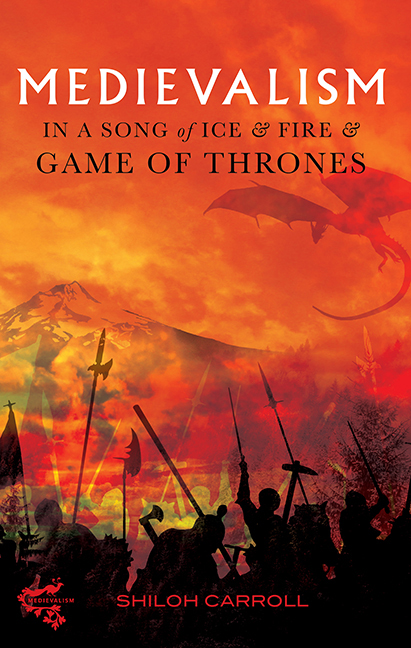Book contents
- Frontmatter
- Contents
- Acknowledgements
- Author's Note
- Introduction: Martin and Medievalist Fantasy
- 1 Chivalric Romance and Anti-Romance
- 2 Masculinity, Femininity, and Gender Relations
- 3 Sex and Sexuality
- 4 Postcolonialism, Slavery, and the Great White Hope
- 5 Adaptation and Reception
- Afterword: “Fantasy for people who hate fantasy”
- Bibliography
- Index
- Medievalism
5 - Adaptation and Reception
Published online by Cambridge University Press: 09 October 2019
- Frontmatter
- Contents
- Acknowledgements
- Author's Note
- Introduction: Martin and Medievalist Fantasy
- 1 Chivalric Romance and Anti-Romance
- 2 Masculinity, Femininity, and Gender Relations
- 3 Sex and Sexuality
- 4 Postcolonialism, Slavery, and the Great White Hope
- 5 Adaptation and Reception
- Afterword: “Fantasy for people who hate fantasy”
- Bibliography
- Index
- Medievalism
Summary
WHEN A SONG of Ice and Fire began to climb the bestseller charts and The Lord of the Rings film franchise was a box-office smash, Hollywood began looking for the next fantasy epic, and naturally lit on Martin's work. Having worked in Hollywood before returning to novel writing, Martin was understandably nervous about entrusting his series, which he claimed was written “with an eye toward unproduceability,” to Hollywood executives. “There's so many cases where they just keep the title and change everything,” he commented. Various studios wanted to adapt only part of the story – perhaps one character's storyline – or to commit to just a single film rather than a series. Martin was, fortunately, in a financial position that allowed him to turn down all of these suggestions. He was determined that only HBO, which had pioneered the trend of morally grey antiheroes on television with The Sopranos, could do his work justice.
In 2005, David Benioff and D.B. Weiss, having read the books and loved them, met with Martin to pitch their idea for an HBO series. The lunch lasted hours and concluded with Martin asking Benioff and Weiss who Jon Snow's mother was as a litmus test for their interest in the story in the books. “Maybe if we had gotten it wrong, he would have let us do it anyway,” Weiss says. “It was still obvious that we love this, and that we wanted to do it more than anything in the world, and that we would respect it and honor it. I think getting (the answer) right probably helped.” Martin, in turn, thought that Benioff and Weiss were “mad”; “It's too big,” he recalls telling them, “It's too complicated. It's too expensive. HBO doesn't do fantasy.” But Benioff and Weiss’ enthusiasm convinced him. Benioff and Weiss took Martin's permission and their pitch to HBO, and in March of 2010, HBO announced that it had greenlit the series for production and a basic cast – Sean Bean, Mark Addy, Peter Dinklage, Lena Headey, and Tamzin Merchant (who would later be replaced by Emilia Clarke). Over the next few months, Martin used his “Not a Blog” Livejournal to pass on casting and production news, turning casting into a game for his fans by giving them clues regarding the actors’ identities and letting them guess before officially announcing the casting.
- Type
- Chapter
- Information
- Medievalism in A Song of Ice and Fire and Game of Thrones , pp. 131 - 180Publisher: Boydell & BrewerPrint publication year: 2018

